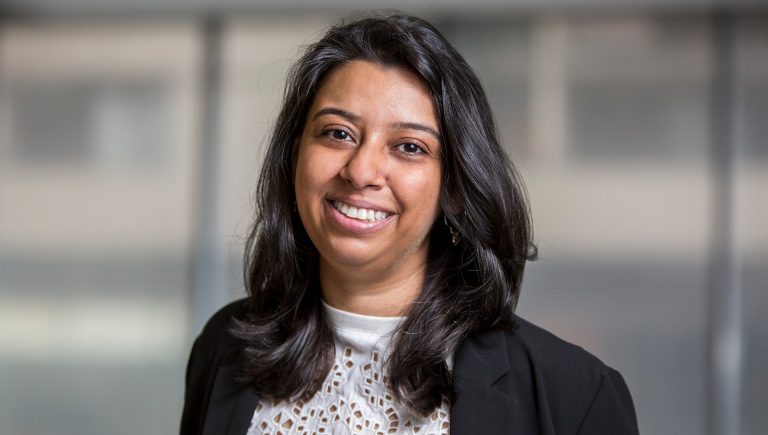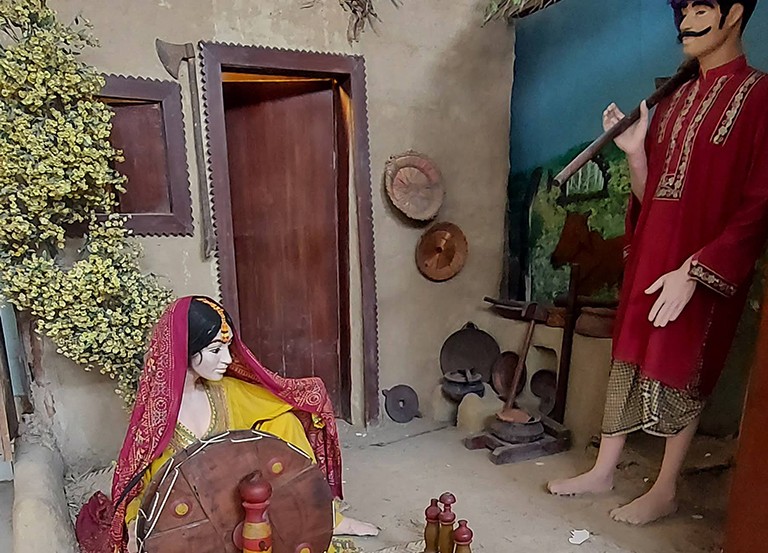Concordia Public Scholar Varda Nisar explores political agendas and stereotypes in Pakistan's museums

Museums play a crucial role in shaping national identity and preserving cultural heritage. But according to Concordia Public Scholar Varda Nisar, they can also promote political agendas and perpetuate harmful stereotypes.
The doctoral student in the Department of Art History is examining how three museums in Pakistan portray ethnic and religious minorities and gendered bodies. In her research, Nisar has discovered that the majority of Pakistani museums were built under military dictatorship. They are therefore deeply intertwined with military ideology and serve to perpetuate harmful, colonial stereotypes of the country's minorities.
She also found that many museums have not updated their collections since their inception, and as such reads it as a refusal to keep pace with changing worldviews and ideas.
Nisar — who also founded a children's art festival in Karachi and worked as the head of educational programming for the Karachi Biennale — will be exploring issues currently faced by South Asian museums at a roundtable discussion. The event, The Logic of Postcolonial Museums, takes place at Concordia’s 4TH SPACE on March 6 from 10 a.m. to 12 p.m.
She will also be hosting a live podcast at 4TH SPACE, What did we get ourselves into? Reflections from Emerging Curators, on March 7 from 1 to 2 p.m. Nisar and two other art history students will discuss what it means to curate an exhibition while learning on the job. Their co-curated exhibit, re* imagining / créer / building / faire / mapping / connaissance /..., is opening March 9 at the FOFA Gallery, and March 30 at the Webster Library.
The public is welcome to attend both events, in-person or online.
 Diorama at the National Museum of Pakistan, Karachi. | Photo by Varda Nisar
Diorama at the National Museum of Pakistan, Karachi. | Photo by Varda Nisar
‘Cultural production, the military and propaganda are all tied up’
What inspired you to study Pakistan’s museums?
Varda Nisar: When I moved to Islamabad, Pakistan’s capital city, I kept seeing this national monument on my daily commute. The monument is made up of four large petals that represent the four main ethnic communities in the country. This idea — that Pakistan only consists of four ethnicities — struck me, because there is an ongoing struggle by different communities to be recognized, represented, and have their voices heard.
Once I started noticing that monument, I started looking at other places. I've been going to museums in my home city, Karachi, all my life. But I had never dug deeply into the narrative. And once you start digging, you realize that these museum dioramas of ethnic groups sitting in their villages is such an old, colonial way of framing ethnic minorities. It perpetuates certain stereotypes.
Tell me more about Pakistan’s museums.
VN: In Karachi, there are just a few public museums. They're not like the ones we imagine in the West. Most of these public museums in Pakistan have had the same displays since they were made, and they are very outdated. The community voice in those museums is absent.
It’s also important to note the connection between cultural production and military dictatorships in Pakistan. The army has been a very powerful institution since Pakistan’s inception in 1947. The army runs our foreign affairs and makes all our important decisions.
What I see in my research is that dictators constantly use culture as a tool. When they build museums or large infrastructure projects like dams, the language they use is wrapped around ideas of modernity. ‘We are making a modern museum;’ ‘We are finally going to have an art museum in this corner of the city which is completely inaccessible by public transport.’
The military also invests millions of dollars making these high-budget movies and nationalistic songs. Cultural production, the military and propaganda are all tied up.
How can museums become more inclusive spaces?
VN: If museums do not take the initiative to be inclusive, especially towards minorities, then we are going to continue to isolate and exclude people, while simultaneously making museums redundant. Museums can play a part in bringing people in and making them feel welcome. That can be achieved by exhibiting works from minority groups and regions, engaging in dialogue with them and changing ideas about them.
Learn more about Concordia’s Public Scholar Program.
Join the roundtable event, The Logic of Postcolonial Museums, at 4TH SPACE (1400 De Maisonneuve Blvd. W.) or watch online on March 6 from 10 a.m. to 12 p.m.
Join the live podcast event, What did we get ourselves into? Reflections from Emerging Curators, at 4TH SPACE (1400 De Maisonneuve Blvd. W.) or watch online on March 7 from 1 to 2 p.m.


